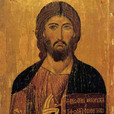
Summary: In this Episode of CS we’ll take a look at a figure of church history anyone who’s done any reading in such has likely encountered – Eusebius of Caesarea. He’s a prominent figure because he’s known as the Father of Church history for his classic work Ecclesiastical History which charts the course of the early church from its inception to the late 3rd C.His history of the Church was originally composed in 10 volumes. He began it during the Great Persecution of 303–313 and completed it around 315. Over the next 10 years he edited and revised it several times. It charted the course of primitive Christianity from obscurity in the backwater province of Israel to the favored faith of the new Emperor Constantine. Along the way, Eusebius does future generations a great service by giving careful lists of church regions and their sequence of leaders. He quotes early Christian authors; writings long since lost to us but now preserved by the pen of Eusebius. He describes the early church’s labor to define and understand the Trinity as over against the various heresies that sought to hijack orthodoxy. Though Eusebius began his chronicle during the Great Persecution, he lived to see The Faith’s emergence from the catacombs during the time of Constantine, to stand on the threshold of a new world in which Christ could be envisioned as triumphant over Caesar. [1]While Eusebius is honored today as the Father of Church History for his literally ground-breaking work, his generation knew him simply as the bishop of Caesarea and a friend of Pamphilus, a scholar who fought valiantly against the Arian heresy.Little is known of Eusebius’ life prior to his tenure as lead pastor at the important church of Caesarea. He seems to have been born in the Roman province of Palestine around 260. He became a pupil of Pastor Pamphilus at Caesarea, then his chief assistant. Pamphilus had come from Alexandria and made at Caesarea one of the greatest libraries of Christian writings. Just before Pamphilus arrived, the great scholar Origen had centered his work at Caesarea and composed the famed Hexapla there, a Bible in 6 side-by-side languages. It was kept in the library there. Though Pamphilus expanded Caesarea’s library, it was Origen who’d started it with volumes he’d collected during his many travels. Eusebius so revered his teacher he called himself “son of Pamphilus.” Pamphilus was imprisoned in the last days of the Great Persecution and died a martyr in 310. Eusebius wrote a 3 volume biography of his mentor.The persecution that claimed Pamphilus continued to wreak havoc among the Christians in Caesarea, so Eusebius fled to Egypt for a few yrs where things were less dicey. When he returned to Caesarea in 313, the church elected Eusebius as bishop. The city had a population of 100,000; no small number of a city of that time and place. There he wrote 3 of his longest works;1) A refutation of paganism in 15 volumes he titled Preparation,2) A 20 volume look at Old Testament prophecy’s fulfillment by Christ titled Demonstration of the Gospel,3) And something he titled Chronicle which was a record of world history to 303, which Eusebius intended as a preface to his magnum opus, Ecclesiastical History.A few yrs after Eusebius became bishop at Caesarea, the Arian Controversy broke out in full force, threatening to tear the church apart. It seemed what persecution had been unable to do during the reign of Diocletian, an argument over theology would accomplish when persecution was over.As the student of Pamphilus, Eusebius did not support Arius’ idea that Jesus wasn’t God. But Eusebius would not go along with the movement to declare Arius a heretic and toss him and his many supporters from the church. For this, Eusebius himself was excommunicated in early 325 aby an Anti-Arian synod at Antioch. At the Council of Nicea later that year, he defended himself before the Emperor by bringing forth a copy of the baptismal creed used in h
